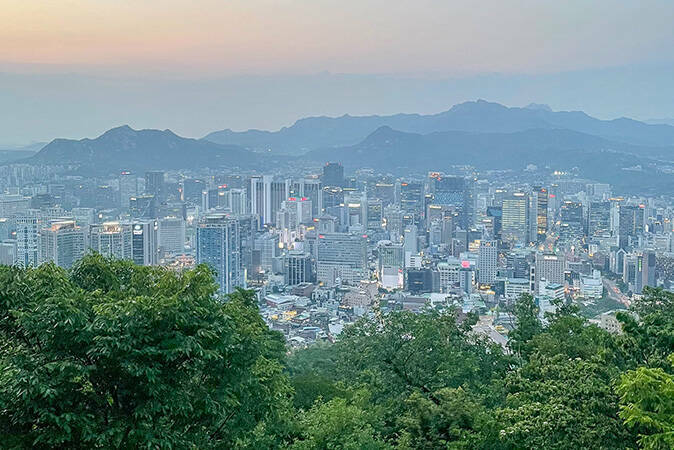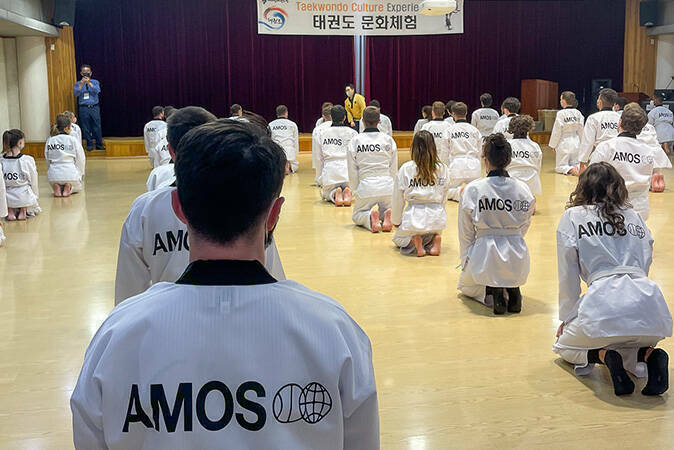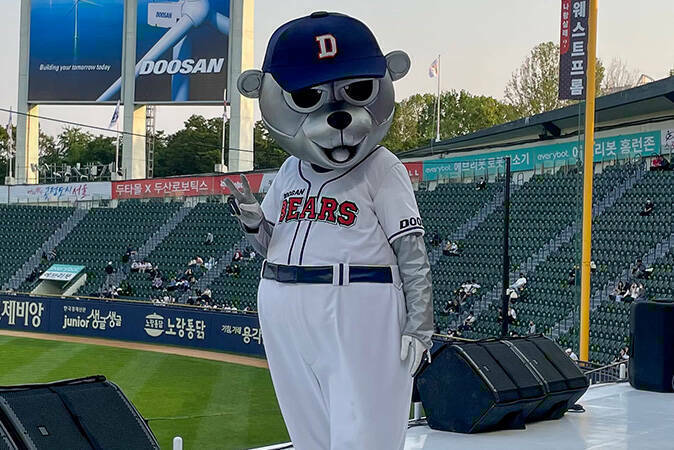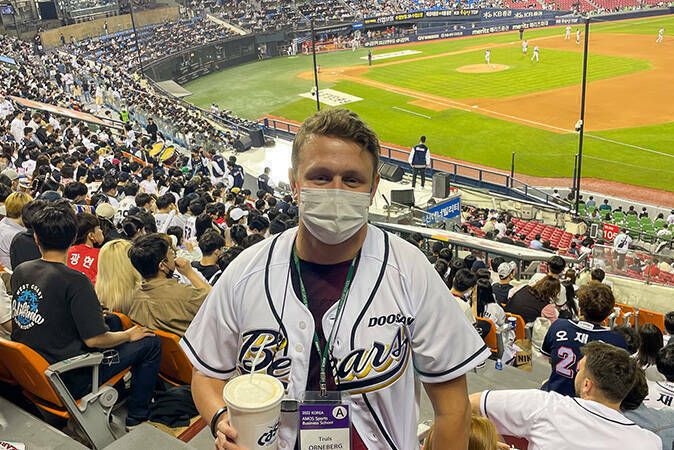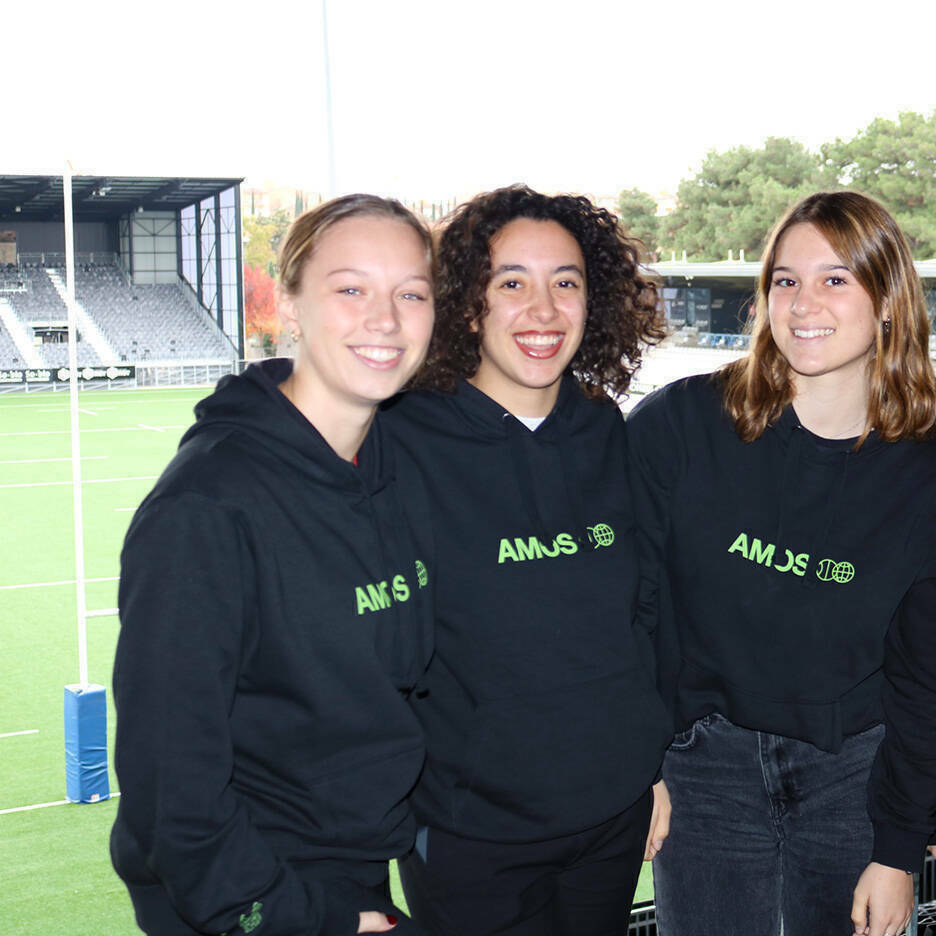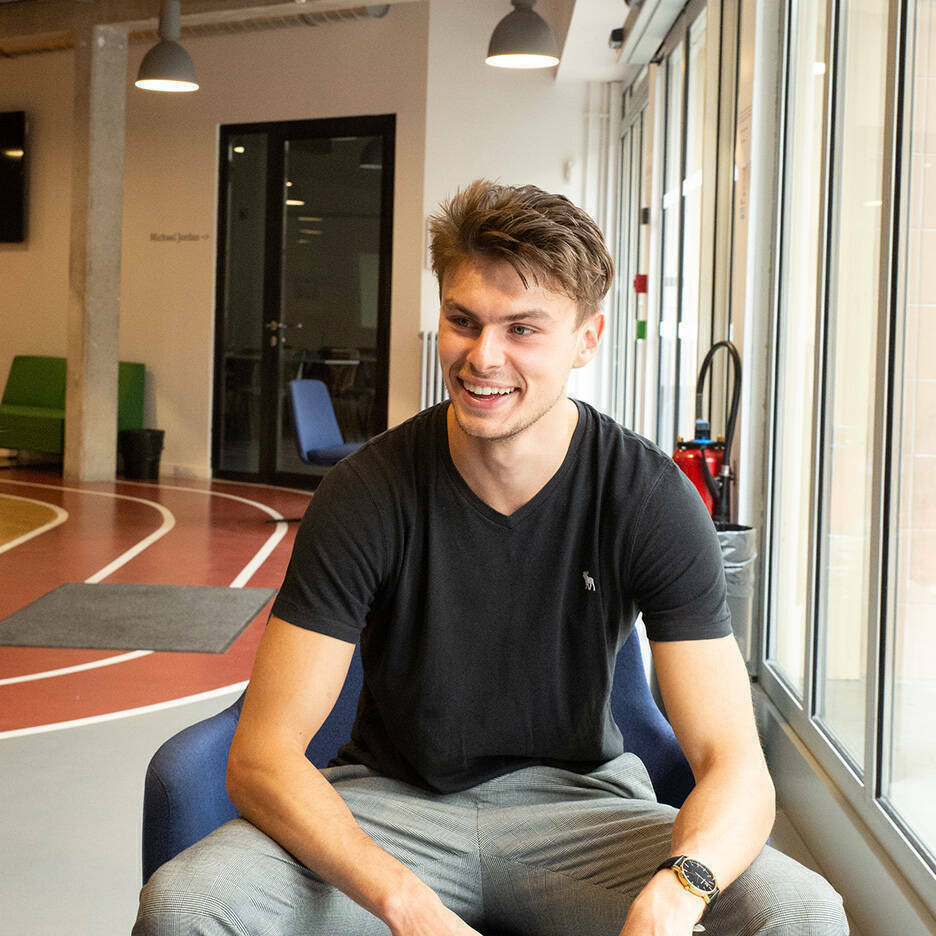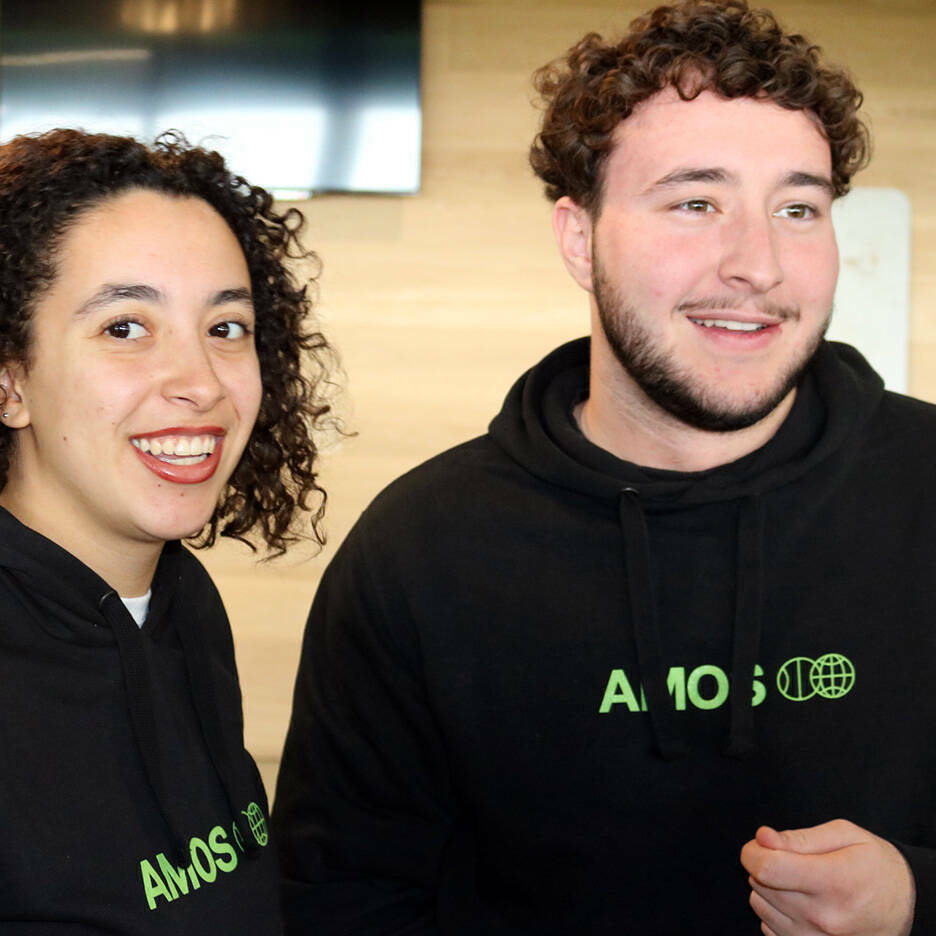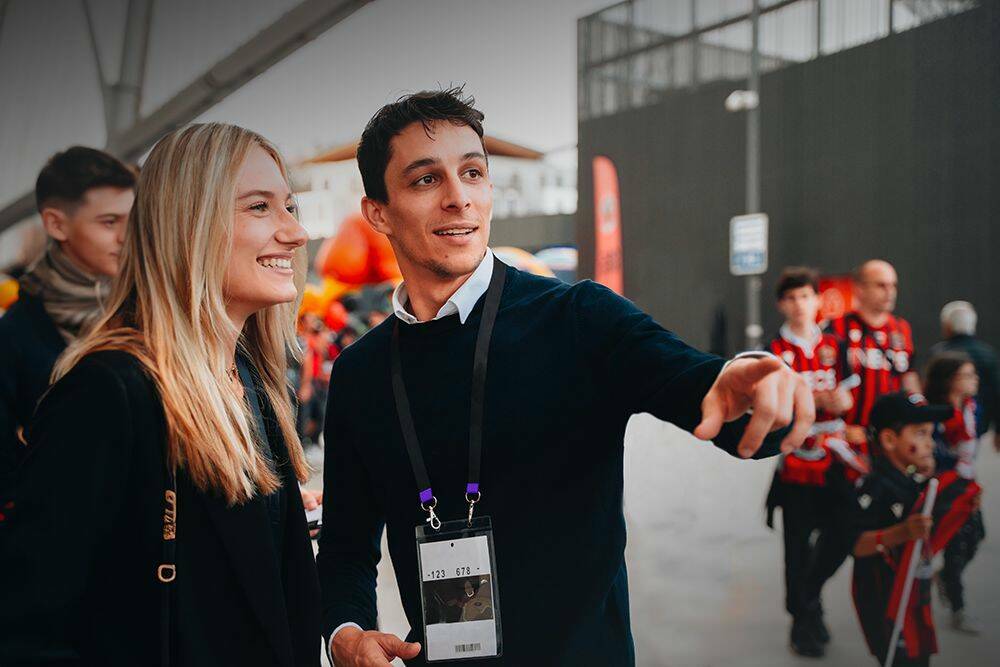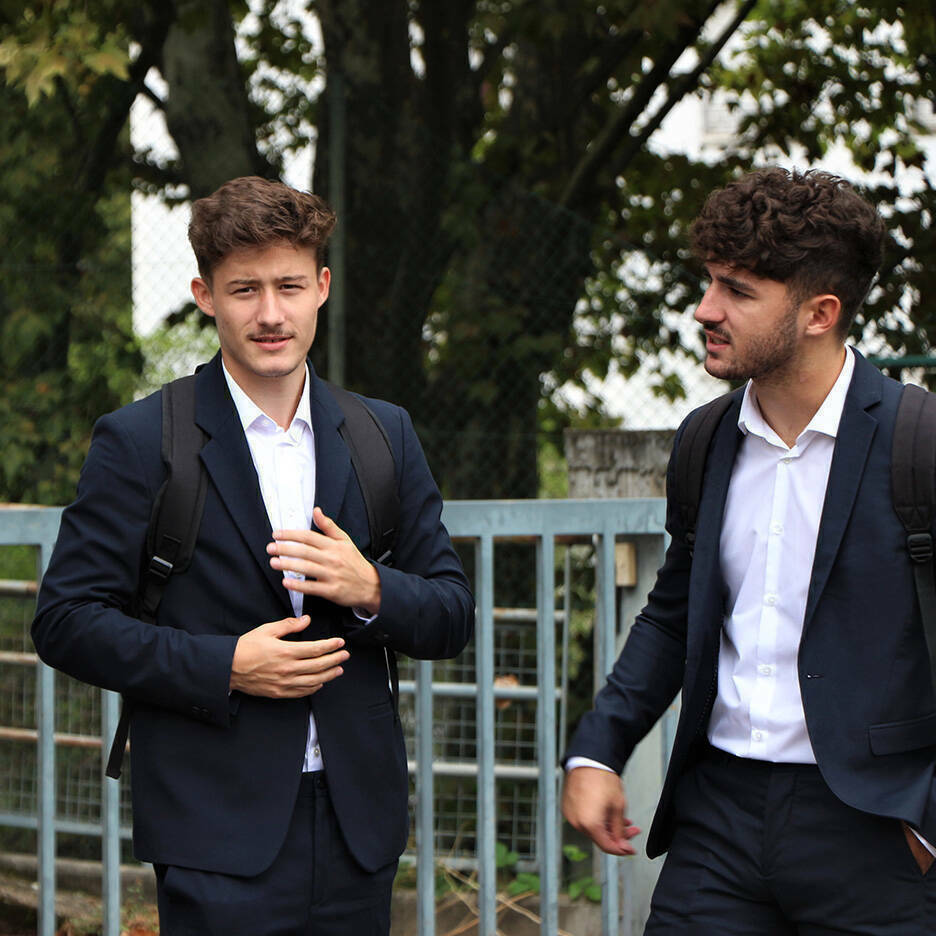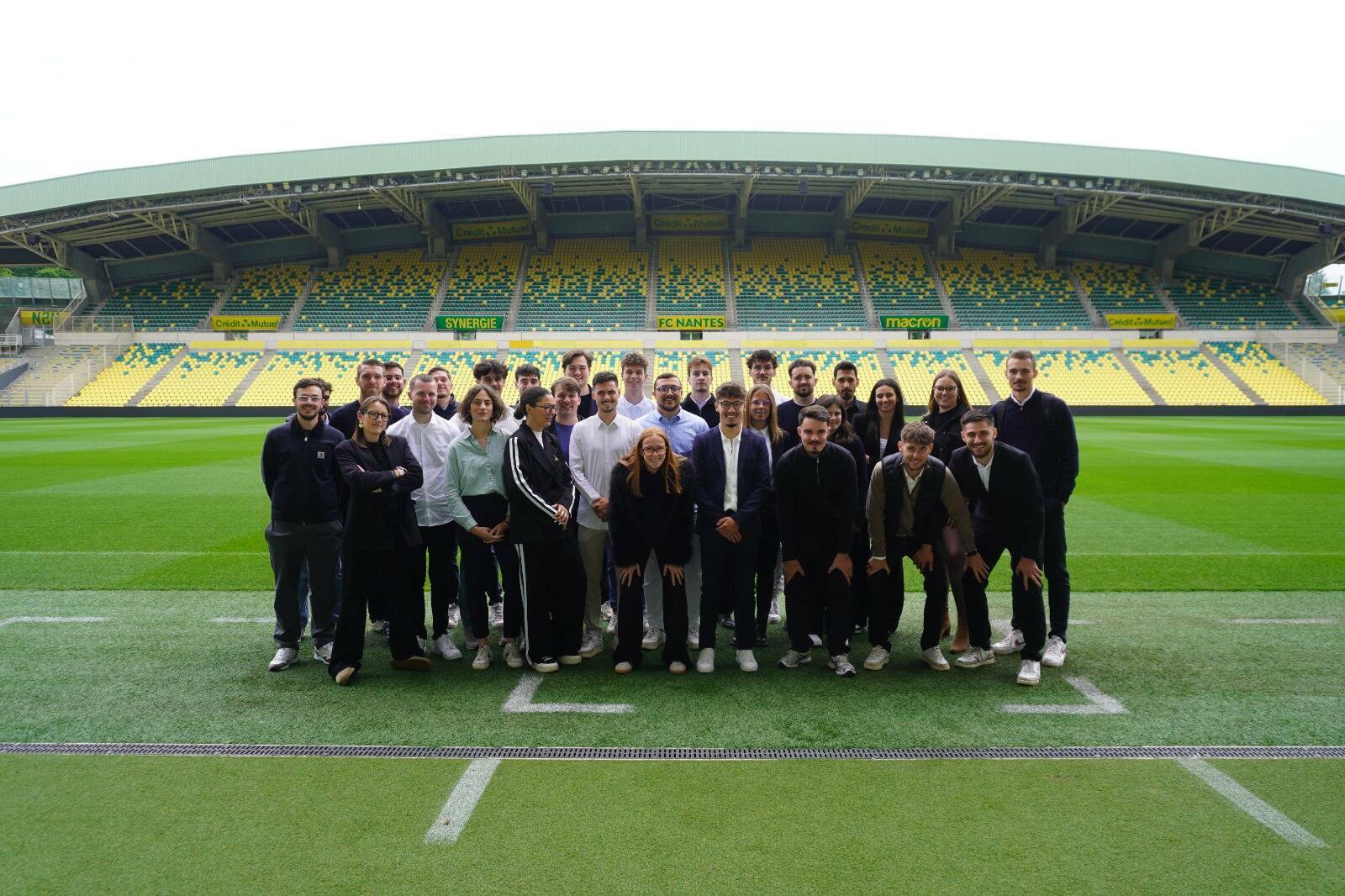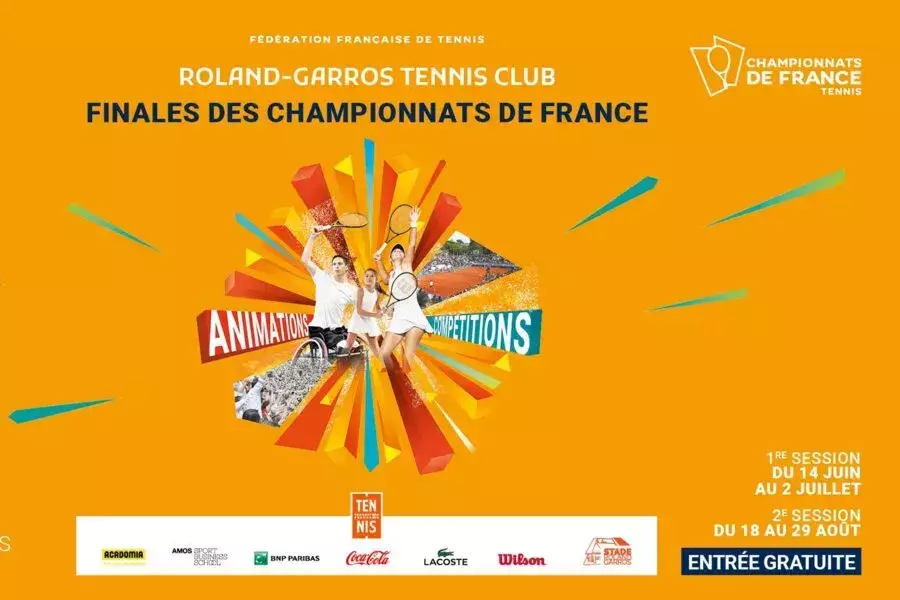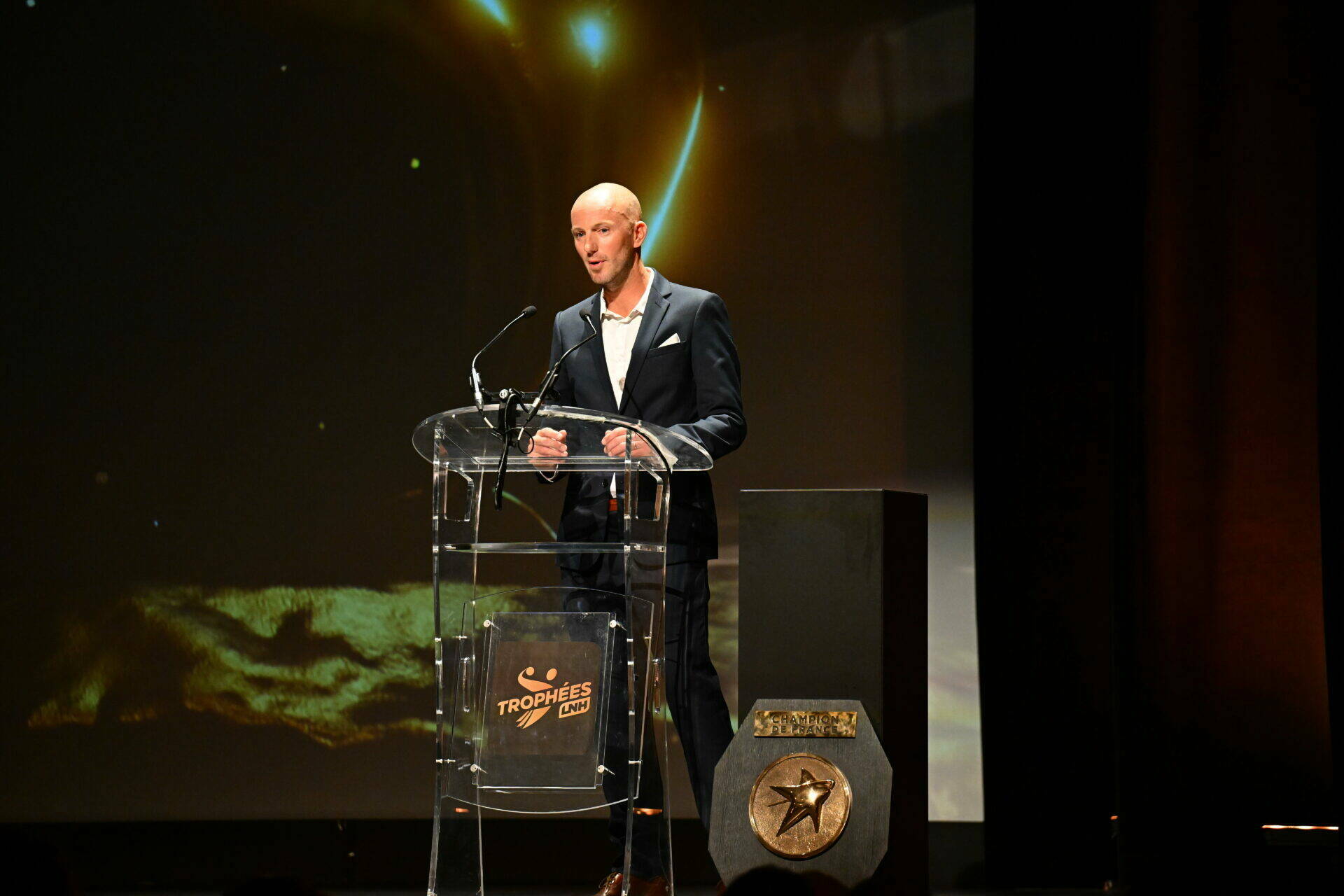Welcome to Seoul, South Korea, AMOS GSBM Study Trip
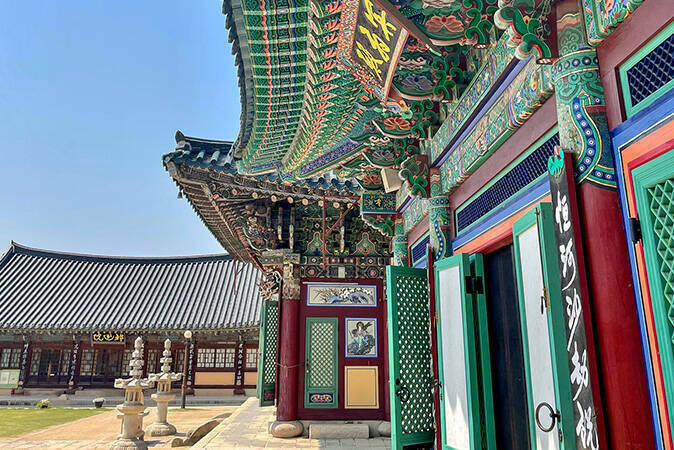
Going on an adventure
Picture this, taking a flight to the other side of the world, discovering a new culture and exploring one of the biggest capital cities in Asia. Surrounded by your classmates, soaking up the sun and getting VIP access to major sporting events during this once in a lifetime opportunity.
The one-month programme, organised for the Global Sports Business Master (GSBM) first-year students from AMOS, proposed daily seminars to broaden their knowledge about the sports business industry. After hosting this programme in China for the past few years, AMOS decided to take the students to discover another area of Asia, and took the opportunity to turn towards South Korea, Seoul.
The man behind the seminar
Upon arrival in the capital, students were welcomed by Sunny Son, the organiser of the programme. This highly successful man, was always available to help the students and put a smile on their faces. As well as being constantly seeking to provide the best experience for them, Sunny is a well experienced business man with 22 years working in education, creating business schools, international programmes as well as providing Korean students with the opportunity to access high-level education.
Sunny is extremely involved in the development of sports in Korea and has, just to give an example, notably worked for the organisation of the 6th edition of the Military World Games in Korea, in 2015.
1988, the year when everything started
Korea is currently a world-class country when it comes to organising sporting events and competing at the highest level, but it has not always been this way. The modern days of South Korea started back in 1988, when the country hosted its first Olympic Games.
This great achievement opened both Seoul, and the rest of the country, to the world. It helped develop its diplomatic and economic relationships with leading countries, as well as reinforcing the national pride and creating collective memories.
Following this event, Korea knew that they needed to capitalize on their recent success and decided to invest part of the benefits to establish the Korean Sports Promotion Foundation (also known as KSPF). Since its creation, the foundation has invested more than 8 billion Dollars into sports development, which had a positive result as Korea went from winning 37 medals, prior to its creation, to 277 since 1988.
Moreover, the organisation of the 1988 games has paved the way for Korea to host some other mega events in the years that followed. Examples are: the Busan 2002 Asian Games, the FIFA World Cup 2002, the Incheon 2014 Asian Games, and the Olympic Winter Games Pyeongchang 2018.
The evolution of the sports market in Korea
Korean people are always on the lookout for new experiences which explains the constant evolution of their sports market. Fitness studios have significantly increased, the practice of Golf and Baseball (on and off-screen) has gained popularity, and since the early 2000s, western sports such as soccer, baseball, basketball, and volleyball have become the most watched sporting events in South Korea.
The rise of esports
Considered an authentic sport by the young generations in the Republic of Korea, Sunny explained to us that “esports were born in the 70s’ to compete against Starcraft (a popular strategy game) enthusiasts. At the time, the winner would win a packet of ramen. Later, in the 90s’, the Korean government built a national broadband network to showcase some of their best talents. Nowadays, the industry has grown into a 1-billion-dollar industry with other countries such as China, utilising marketing strategies introduced by Korea, to grow this billion-dollar market”
The rise of esports has pushed Korean investors to create new infrastructures in which casuals can come and exercise through both on and off-screen activities. Venues like Sports Monster or Sports 360 are both great examples of this new trend and luckily our Global Sports Business Master first year students were able to visit them both.
What does it look like to learn Sports Business in Korea ?
Attending sports seminars in the morning, trying authentic food for lunch and exploring world class sports infrastructure in the afternoons, this was the students’ lives in Seoul.
Numerous subjects were taught during the study trip: the Olympic legacy, the cultural differences between Korea and Europe when it comes to sports, social psychology in sport, the rise of football in Korea, event marketing and the growth of esports/technology.
To offer the best learning experience to our students, Sunny made sure to invite the very best of lecturers to come and share their experiences with the AMOS students: “an example of professional lecturers sharing their expertise is Dr Chang Won Jae – a football expert and a TV host for football shows in Seoul – who provided a lecture to our students about the rise of football as well as the psychology as to why people do sports”
Learning Highlights
One week into the programme, the students received a lecture from the former Minister of Education, Sport, and Tourism, currently working for the KSPF. The subject of the lecture was the legacy of the Olympic Games and the role played by the Korean Sports Promotion Foundation to preserve them. Once the lecture was finished, the AMOS students were free to explore the different sports infrastructures of the Parc.
Seizing an opportunity
Even though the students were only there for a month, Sunny suggested that Korean companies were looking for European expertise in the development of global sports infrastructures, and it could be a great opportunity for the students: “Korea has developed advanced sports infrastructures, technologically innovative training programmes, abundant sponsorships, and a culture of national solidarity that roots for the athletes. Yet, sports business remains a relatively unexplored field of research, which is why there are still subjects that students can engage with and suggest solutions for”.
Korean culture
Korean culture is, as much as sports, something that the students were looking forward to discovering, and thankfully, our host had planned it all, “there are numerous cultural activities offered to students, the Buddhist temple visit, the Gyeongbokgung Palace, the Bookchon Hanok village as well as the practice of Taekwondo which show a glimpse of our culture”.
But there is more, culture in Korea is everywhere and the students could not dream of a better place to discover incredible areas: the Gangnam district, Hongdae, Itaewon to name but a few; they also had the opportunity of trying out some of Seoul culinary specialities, the famous Korean Fried Chicken, the Kimbap, the Korean Barbecue or the famous Korean dumplings: the Mandu.
Conclusion
Our students had a blast for a full month, in Seoul. Learning from top lecturers, visiting ultra-modern sports infrastructures, discovering a world-class city, with its historical vestiges, and its typical cuisine, all of that while having a lot of fun. There is no doubt, the 2022 seminar has been a real success!
The team in Seoul is glad to have welcomed AMOS and its students, and is now focusing on making the 2023 Seoul Seminar even more successful. So, See you next year?
Les autres articles
Retrouvez les autres Actualités Sport Business des campus AMOS
Découvrez nos formations
Un diplôme de niveau bac+5 est courant pour ce type de métier. Un bachelor associé à un master ou un Programme en 5 ans permet de développer des compétences diverses. En effet, en plus d’élargir ses connaissances sur le marché du sport, les étudiants se spécialisent dans le management, la communication et le marketing du sport.
